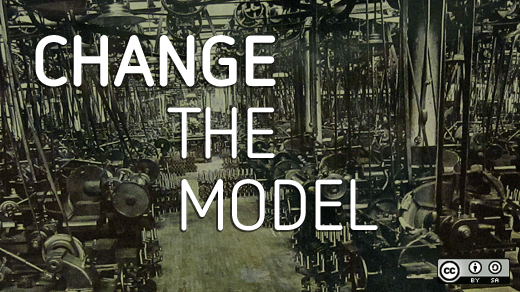Evidence suggests that current models of work, in particular a 9-to-5 work week, are not only deleterious to workers' physical and mental health, but are also sub-optimally productive. Fortunately some countries (such as Sweden) are trialing shorter work weeks with some success (although we must take into account that the effects have been observed only over a short amount of time). Working in open source technologies, however, provides the framework for a completely different model of employment. Instead of being pigeonholed into a single, assigned task, open source contributors are given free reign of their responsibilities, allowing them to utilize their time and skills more flexibly.
Moreover, evidence also suggests that the stigmatization of not working have significant harmful impacts on individuals' mental health. Whether people forego work because of disability, prejudice against long-term unemployment, or simply by choice, the stigma against not working is ever-present and can be damaging.
Open source communities and projects are examples of non-standard work structures that are successfully productive while existing outside typical paradigms for "work." OpenSSL, for example, is an incredibly important software library that serves a large majority of websites across the web. The authors of the software, ranging from one time collaborators to continuous contributors, have collectively forged arguably the most important networking encryption library to date, and they've done it outside traditional business models. The software is a the result of effort from a diverse community of volunteers working on "their own time," rather than on the rigid production model of a proprietary software development firm.
Open source projects also challenge traditional business organizational structures with regard to worker coordination. Eric S. Raymond, in his essay The Cathedral and the Bazaar, compares the difference between proprietary software and open source development styles to, as the title suggests, a cathedral and a bazaar. The primary difference in these styles is the hierarchical structure of the proprietary software development and the flat organizational structure of the open source development model. However, this comparison is applicable outside of software creation processes, too. Most companies still function under a hierarchical model, where all but a select few individuals are subordinates of other employees; power structures are very clearly defined and staff members can only further develop skills within a certain specialization. Open source work tends to lean more towards a non-hierarchical (or heterarchical) management system in which leadership is decentralized. This leads to contributors experiencing more autonomy in their roles in certain projects. It also allows for more creativity and diversity among contributors, whose abilities are not restricted to a particular niche. Another advantage of flat organization structures is a certain flexibility to adapt to change, which is necessary in the realm of open source software development.
Accessibility is another area in which open source trumps traditional work models. Rather than focusing on well-being of individuals in society, many of today's neoliberal economic practices prioritize productivity—which often leads to disability discrimination. While recent decades have seen an increase in government initiatives to allow more job opportunities for people with disabilities, as of 2014, disabled unemployment in America is at 12.5 percent, more than double the unemployment rate of those with no disability at 5.9 percent. A core tenet of open source, as opposed to current models of work, is to allow anyone who wishes to contribute to the ecosystem to be able to do so. In point of fact, Mike Gifford, founder of OpenConcept Consulting, has spoken about a specific need for disabled contributors in the open source community. "If people conscious of accessibility issues can write the code and create a patch to improve the library it can be much more easily incorporated by the project's maintainers," he writes in his article How & Why People With Disabilities Should Engage with Open-source Software Communities. "Accessibility is an issue that everyone can get behind." While open source communities still present hurdles to complete accessibility, open source environments enable those living with disabilities to be feel more empowered than they would in other work cultures; this environment is less discriminatory and can help counter both the stigma and the danger to mental health long-term unemployed persons with disabilities might experience.
Although open source projects can assume "9-to-5 form," or even be organized into hierarchical structures, they offer an interesting alternative to the traditional work paradigm. Perhaps this trend will grow into wider acceptance of non-standard work, and enable individuals more easily pursue their passions.






10 Comments